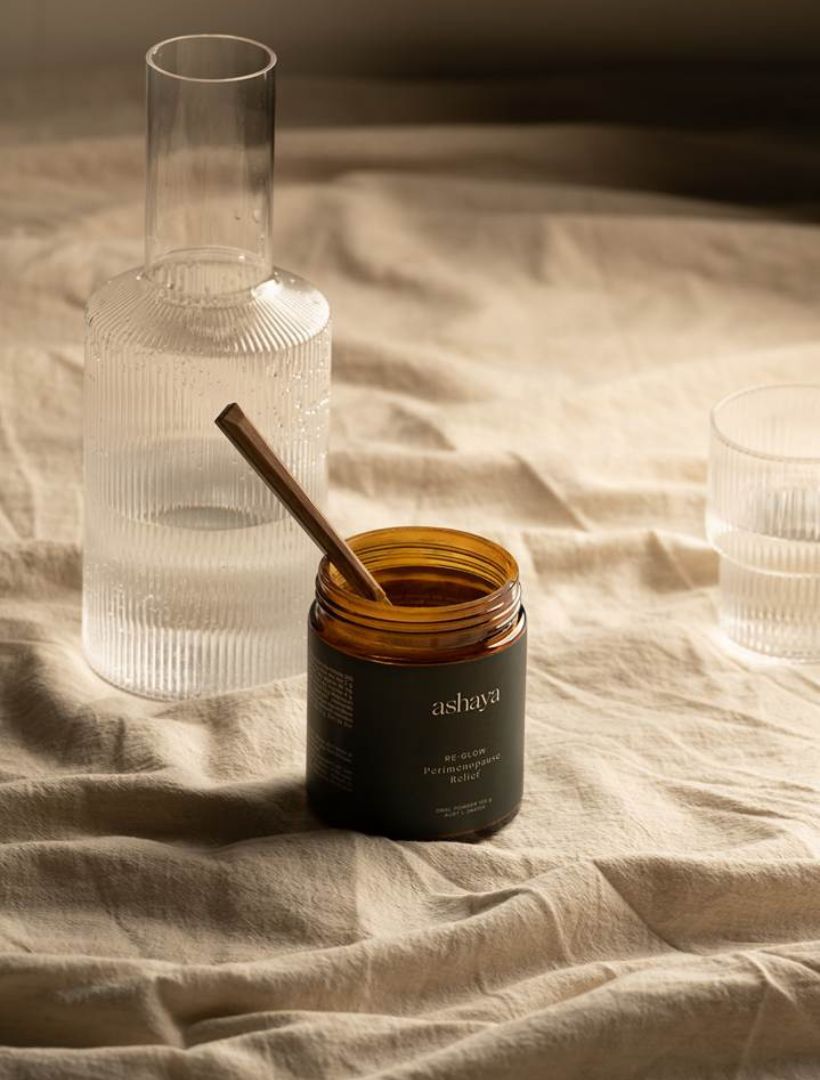Perimenopause is often described as a rollercoaster — and not the fun kind. Hormones fluctuate, energy dips, moods shift, and sleep becomes elusive. But rather than feeling like your body is working against you, this season can become an invitation to work with it — to create rituals that help you feel more grounded, balanced, and at home in yourself.
Here’s your Hormone Smart Toolkit — five simple, evidence-backed tools you can start today to support your body and mind through perimenopause.
1. Strength Training: Building Resilience from the Inside Out
Why it matters:
As oestrogen levels decline, we naturally lose muscle mass and bone density. Strength training helps counteract this, improving metabolism, energy, and mood while protecting long-term bone health.
What to do:
You don’t need a gym membership or heavy weights to start. Begin with two short 20–30 minute sessions a week — bodyweight exercises like squats, lunges, and push-ups are powerful. Gradually add resistance bands or light dumbbells as you feel stronger.
ashaya tip: Think of it as training for life — not just fitness. The strength you build now helps stabilise hormones, support healthy insulin levels, and increase confidence in your body at every age.
2. Prioritise Fibre & Protein: Feed Your Hormones Wisely
Why it matters:
Fibre helps eliminate excess oestrogen through digestion and supports a healthy gut microbiome — crucial for hormone balance. Protein provides amino acids that regulate neurotransmitters, helping with energy, sleep, and mood stability.
What to do:
- Aim for 25–30g of fibre daily from vegetables, legumes, chia seeds, flaxseeds, and whole grains.
- Include 20–30g protein at every meal — eggs, fish, tofu, lentils, and Greek yoghurt are great options.
- Pair protein and fibre together to stabilise blood sugar and prevent those mid-afternoon energy crashes.
ashaya tip: Add a teaspoon of flaxseeds to your morning smoothie or sprinkle hemp seeds over your salad — small habits add up to big hormonal wins.
3. Sleep Like It’s Sacred
Why it matters:
Sleep is when your body resets, repairs, and regulates hormones — including cortisol, oestrogen, and progesterone. Poor sleep can amplify hot flushes, mood swings, and cravings.
What to do:
- Keep a consistent bedtime and wake time (even on weekends).
- Limit caffeine after midday and avoid screens an hour before bed.
- Try a short meditation or warm magnesium bath before sleep to activate your body’s relaxation response.
ashaya tip: Turn bedtime into a ritual: sip herbal tea, apply our Re-Glow Body Oil, and take a few deep breaths to signal your body it’s safe to rest.
4. Supplement with Plants: Nature’s Gentle Support
Why it matters:
Certain Ayurvedic and clinically studied herbs can help regulate mood, sleep, and energy — naturally easing the hormonal fluctuations of perimenopause.
What to do:
Our Re-Glow Perimenopause Relief blend was designed with this in mind. Featuring KSM-66® Ashwagandha, Affron® Saffron, and C3® Curcumin, it supports mood balance, sleep quality, and reduces hot flushes — without synthetic additives or hormones.
Shop Re-Glow Perimenopause Relief →
ashaya tip: Take your supplement consistently, ideally in the morning with food. Pair it with a moment of mindfulness — breathe, stir, sip, and set an intention for your day.
5. Manage Stress with Stillness (Even in Small Moments)
Why it matters:
Chronic stress drives cortisol up, which can disrupt progesterone and oestrogen balance. Finding moments of calm isn’t indulgent — it’s biochemical self-care.
What to do:
- 5 minutes of deep belly breathing.
- A mindful walk outside without your phone.
- Journaling one thing you’re grateful for each day.
ashaya tip: When you feel overwhelmed, place your hand on your heart and take three slow breaths. Remind yourself — your body isn’t broken, it’s recalibrating.
Your Takeaway
Perimenopause doesn’t have to feel like a loss of control. With the right support — movement, nourishment, rest, and plant wisdom — your body can find its new rhythm. These simple daily tools help you not only manage symptoms but reconnect with your body in a deeper, more powerful way.
Because when you support your hormones, you support you.

